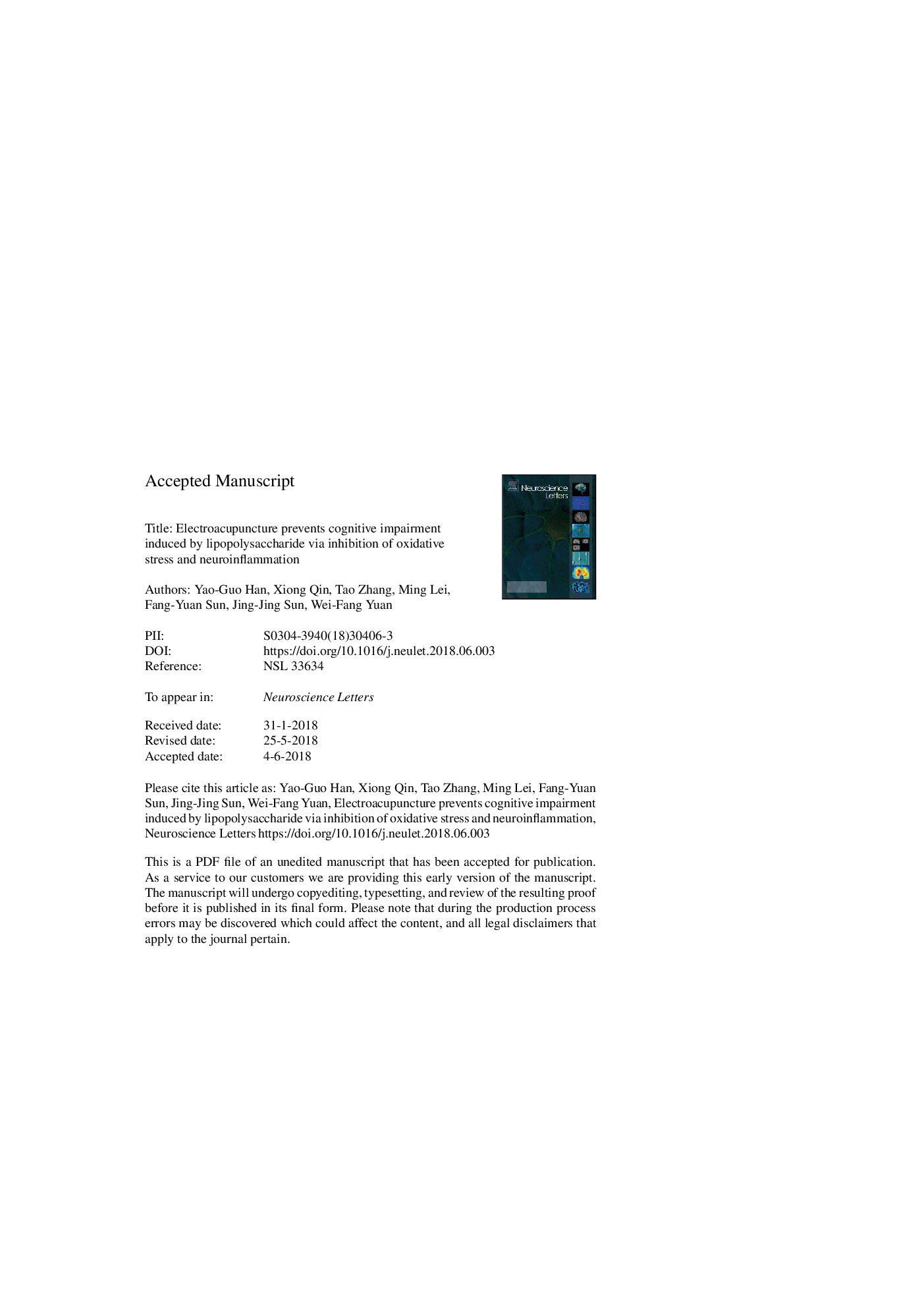| Article ID | Journal | Published Year | Pages | File Type |
|---|---|---|---|---|
| 8841387 | Neuroscience Letters | 2018 | 24 Pages |
Abstract
Oxidative stress and neuroinflammation play an important role in the pathophysiology of lipopolysaccharide (LPS)-induced cognitive impairment. This study aims to observe the effect of electroacupuncture (EA) on the cognitive function in LPS-induced mice, and its regulation on hippocampal α7 nicotinic acetylcholine receptors (α7nAChR), oxidative and proinflammatory factors. Adult male C57BL/6 nice were used to establish animal model of LPS-induced cognitive impairment, and were randomly divided into three groups (nâ¯=â¯16): control group, model group (LPS: 5â¯mg/kg), and EA group. The cognitive function was measured by Morris water-maze test, and protein expression of α7nAChR in hippocampus was detected by immunohistochemistry. Enzyme-linked immunosorbent assay (ELISA) was used to measure hippocampal proinflammatory cytokines. The results showed that LPS significantly impaired working and spatial memory of mice, which could be attenuated by EA treatment. EA prevented LPS-induced decrease of α7nAChR protein, acetylcholine (ACh) content and choline acetyltransferase (ChAT) activity, and prevented LPS-induced increase of acetylcholinesterase (AChE) activity (Pâ¯<â¯0.05). EA significantly decreased malondialdehyde (MDA) and hydrogen peroxide (H2O2), and increased the contents of catalase (CAT) and glutathione (GSH) in hippocampus of LPS-treated Mice (Pâ¯<â¯0.05). EA also prevented LPS-induced increase of proinflammatory cytokines interleukin-1β (IL-1β), interleukin-6 (IL-6) and tumour necrosis factor-α (TNF-α) in hippocampus (Pâ¯<â¯0.05). In conclusion, electroacupuncture can improve the learning and memory in LPS-treated mice, and its mechanism may be related to enhanced expression of α7-nAChR and cholinergic factors, and suppression of oxidative stress and neuroinflammation in hippocampus.
Related Topics
Life Sciences
Neuroscience
Neuroscience (General)
Authors
Yao-Guo Han, Xiong Qin, Tao Zhang, Ming Lei, Fang-Yuan Sun, Jing-Jing Sun, Wei-Fang Yuan,
